Nothing that tasking, clearing tables, making and serving coffee and that sort of thing, but some of the characters that worked there were such a good laugh. From the Italian restaurant manger who used to drink on the job and got so drunk one Sunday evening he literally ended up with the sweet trolley on-top of him, to the bar Manager, Irish Jerry who introduced me to his homemade super strong Poitin.
Traditionally poitín is created using grain or potatoes as a base, which are made into a wash to be distilled in a homemade copper still.
Open turf fires are then used to heat the still, before a corn flour and oatmeal paste is applied to seal the still joints to avoid alcohol loss.
In order to determine the cut points, the distiller would throw a sample of the spirit onto the still and observe if it caught fire.
In the 15th and 16th Century, English crown agents, and in later times the Garda, could impose heavy fines and confiscate farm machinery where sacks of grain or barley were found that they decided were intended to be used to produce a mash and subsequently poteen. Hiding such tell-tale signs meant that poteen producers' would work without the risk of prosecution, fines and imprisonment.
It was not until 1997 that all restrictions were lifted and Irish poteen could be sold in Ireland. Now there are plenty of places you can buy the stuff now, but back when I was a teenager it was still very much produced under the radar of the authorities for obvious reasons.
Irish poteen has been produced for several centuries and for nearly the last 300 years has been frequently referred to as Ireland's Moonshine spirit. During the period 1666, until recently, in various forms it has been illegal to sell it in Ireland.
In the 15th and 16th Century, English crown agents, and in later times the Garda, could impose heavy fines and confiscate farm machinery where sacks of grain or barley were found that they decided were intended to be used to produce a mash and subsequently poteen. Hiding such tell-tale signs meant that poteen producers' would work without the risk of prosecution, fines and imprisonment.
It was not until 1997 that all restrictions were lifted and Irish poteen could be sold in Ireland. Now there are plenty of places you can buy the stuff now, but back when I was a teenager it was still very much produced under the radar of the authorities for obvious reasons.
It's quite a simple process with simple ingredients, a little like fishing with bread or worms, simple is often all you need, in-fact gin for example, a piece of cake.
Now Knockeen Hills produces poteen you can buy complying with legislation, authorising the use of distillate exceeding 94.7% vol. yeah really...😮 Now Jerry's homemade stuff was around 70% ABV and I can still remember the first time I tasted it like it was yesterday, ridiculously smooth and light on the palate and the strength was undeniable.
Anyway better get fishing hadn't I, well talking of illegal activity the members of the WBAS syndicate are now the eyes and ears for the farmer on this newly acquired stretch of the River Leam. Wayward strays, litter dumpers, balmy sheep, no-gooderers that sort of thing.
I love these sorts of waters but when the rivers are low especially in the summer often they are unfishable, but this 1 mile stretch has it all really. Deep pools, glides and occasional riffles, its those deep pools that offer potential fishing opportunities when the other area of the Leam I fish where you've more chance of balanced news report coming out of the BBC.
This fish don't have to be big in these sort of rivers, it is the unknown quarry that is of particular interest and thanks to the efforts of George Burton the syndicate members have another water to explore, another water to spark the interest. It's a bit of trek for me, but to be honest, 'not' that much further than ones usual river Leam stomping ground.
So better get fishing hadn't I !!!!
To be fair I didn't have much of a plan apart from travel light with a quiver tip rod with maggots, bread and worms as bait. I wanted to walk the whole stretch to check out the lay of the land and if a fish succumbed to the bait, then that would be a welcome return. The temperature had dropped to 3 degrees overnight but I'm sure something would be up for a bite.
Certainly not ideal conditions when I got to the river because the Leam only really fishes well with some water and the sunny conditions certainly wouldn't have helped.
These sort of rivers though have so much character so find those deeper areas and you can stumble upon some fish. George has already picked up a cracking >1lb roach and some rod bending chub here so at least I knew that there were some quality fish about.
A few swims down though I really was struggling for bites and in small swims you often know if there are fish in the swim rather quickly. I stuck it out with the bread but it was clear after a couple of hours things were tough going and would get tougher as soon as the sun was high in the sky.
Still this was a reccy not just a fishing trip and it seemed I did more roving than actual fishing. I baited up the swim you can see me in above when I left, to work my way down the stretch, and I'd fish it last when heading back to the car.
Eventually switching to worm was the change that made a difference because within seconds of the bait settling on the bottom the bites started. Quick fast bites though, not proper pulls so I wasn't surprised the first fish to caught was a tiny chub.
To be fair I did think I'd struggle as not only was it clear but with a frost overnight the fish might well have been put off to feed, certainly in the bits I fished anyway. A lovely stretch though and my sort of river, the problem is the Alne offers the same sort of fishing and that's 5 mins away, not 25 but its the chance of a decent small river roach that will no doubt get me coming back.



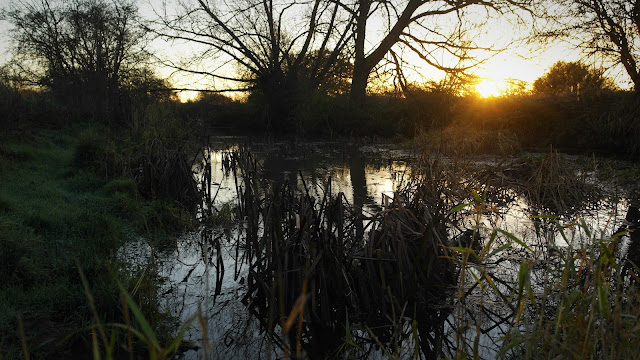


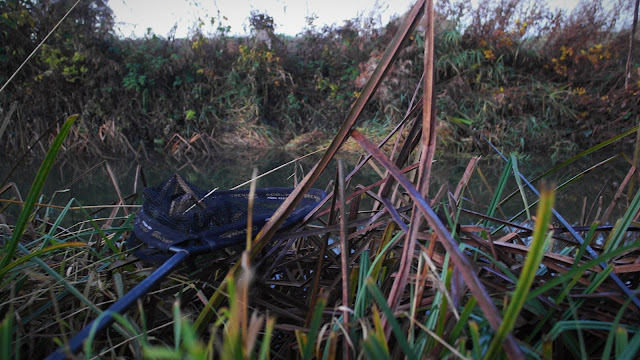
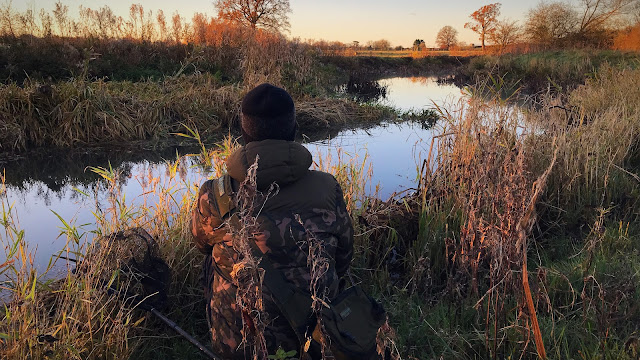
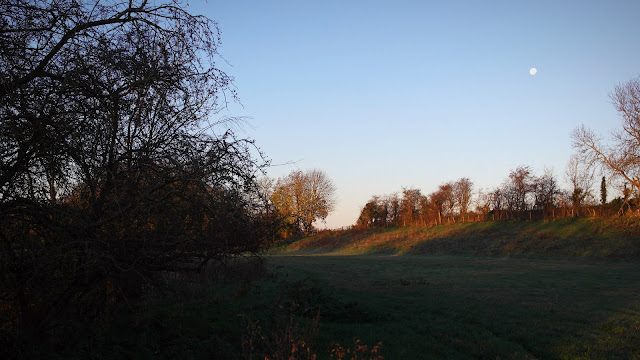
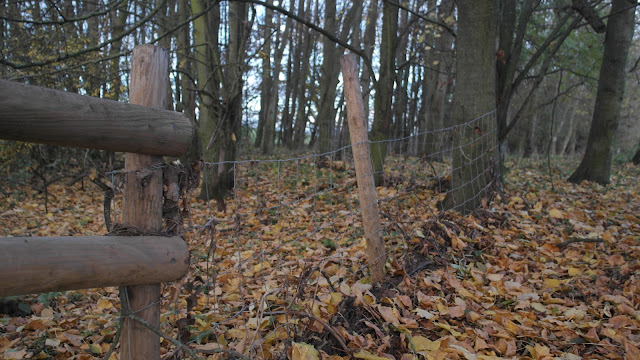
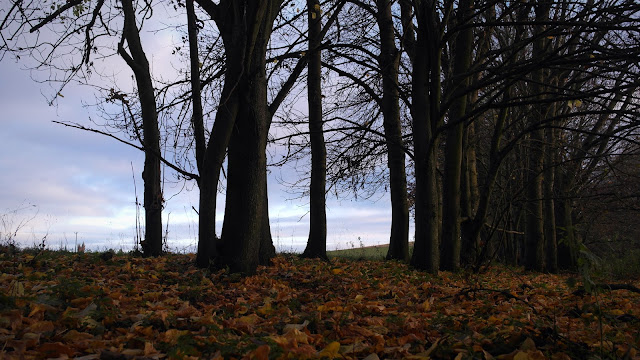
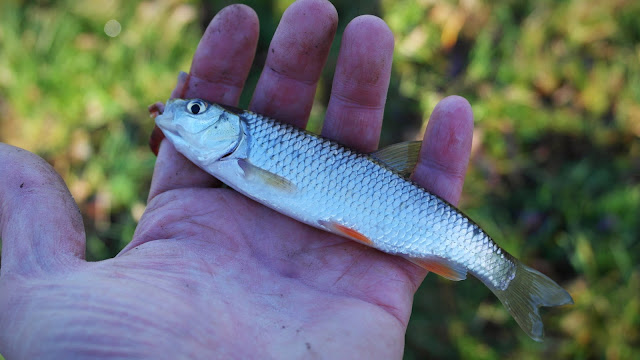
0 comments:
Post a Comment